All Stories
-
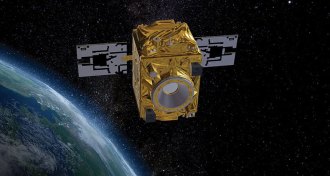 Physics
PhysicsIn a first, Galileo’s gravity experiment is re-created in space
A key principle of general relativity holds up in a new space-based test.
-
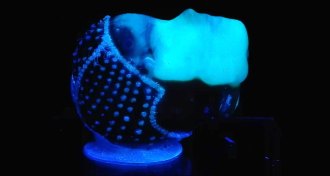 Materials Science
Materials ScienceNew 3-D printed materials harness the power of bacteria
The three-dimensional materials contain live bacteria and could generate wound dressings or clean up pollutants.
-
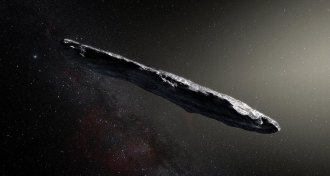 Astronomy
AstronomyWe still don’t know where the first interstellar asteroid came from
Astronomers are tracking stars to see if one of them launched the first interstellar asteroid at Earth.
-
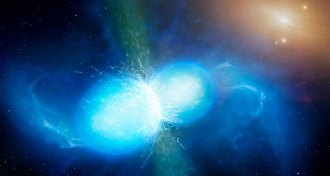 Physics
PhysicsCollision illuminates the mysterious makeup of neutron stars
Scientists size up neutron stars using gravitational waves and light.
-
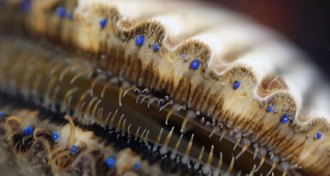 Animals
AnimalsScallops’ amazing eyes use millions of tiny, square crystals to see
Each of a scallop’s many eyes contains an intricate mirror made from millions of crystals.
-
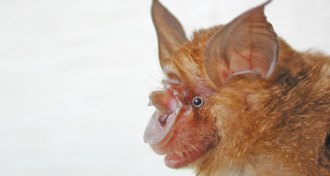 Genetics
GeneticsBats in China carry all the ingredients to make a new SARS virus
Viruses infecting bats could recombine to re-create SARS.
-
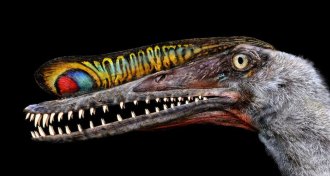 Animals
AnimalsJackpot of fossilized pterosaur eggs unearthed in China
A treasure trove of pterosaur eggs and embryos gives tantalizing clues to the winged reptile’s early development.
-
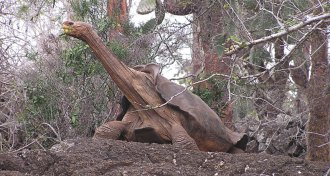 Animals
AnimalsStudying giant tortoise flips without tipping the animals over is a delicate business
Giant tortoise shells go domed or saddlebacked, but which is better when navigating treacherous ground?
By Susan Milius -
 Humans
Humans50 years ago, folate deficiency was linked to birth defects
50 years ago, scientists found that a lack of folic acid in pregnant women could cause birth defects. But now, how much is too much?
-
 Science & Society
Science & SocietyWould you opt to see the future or decipher the past?
Acting Editor in Chief Elizabeth Quill wonders what it would be like if scientists could see into the past and the future.
-
 Life
LifeReaders debate ethics of resurrecting extinct species
Readers raised questions about using gene editing tools to bring species back from the dead.
-
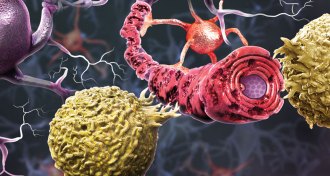 Neuroscience
NeuroscienceScientists are seeking new strategies to fight multiple sclerosis
Facing so many unknowns about multiple sclerosis, researchers explore the immune system, the neurons and the gut to fight the disease.